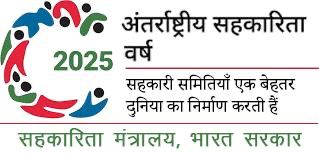राष्ट्रीय शैक्षिक अनुसंधान और प्रशिक्षण परिषद (एनसीईआरटी) भारत सरकार द्वारा 1961 में स्थापित एक स्वायत्त संगठन है जो स्कूली शिक्षा में गुणात्मक सुधार के लिए नीतियों और कार्यक्रमों पर केंद्र और राज्य सरकारों की सहायता और सलाह देता है।एनसीईआरटी और इसकी घटक इकाइयों के प्रमुख उद्देश्य हैं: स्कूली शिक्षा से संबंधित क्षेत्रों में शोध कार्य करना, उसे बढ़ावा देना और समन्वय करना; मॉडल पाठ्यपुस्तकों, पूरक सामग्री, समाचार पत्र, पत्रिकाओं को तैयार और प्रकाशित करना और शैक्षिक किट, मल्टीमीडिया डिजिटल सामग्री आदि विकसित करना, सेवा पूर्व शिक्षक, प्रशिक्षुओं और सेवारत शिक्षकों हेतु प्रशिक्षण का आयोजन करना; नवीन शैक्षिक तकनीकों और प्रथाओं का विकास और प्रसार करना; राज्य शैक्षिक विभागों, विश्वविद्यालयों, गैर सरकारी संगठनों और अन्य शैक्षिक संस्थानों के साथ सहयोग और सहकारिता करना; स्कूली शिक्षा से संबंधित मामलों में विचारों और सूचनाओं के संशोधन गृह के रूप में कार्य करना। अनुसंधान, विकास, प्रशिक्षण, विस्तार, प्रकाशन और प्रसार गतिविधियों के अलावा, एनसीईआरटी स्कूली शिक्षा के क्षेत्र में अन्य देशों के साथ द्विपक्षीय सांस्कृतिक आदान-प्रदान कार्यक्रमों के लिए एक कार्यान्वयन एजेंसी है।एनसीईआरटी अंतरराष्ट्रीय संगठनों के साथ मिलकर विदेशी प्रतिनिधिमंडलों का दौरा करने और विकासशील देशों के शैक्षिक कर्मियों को विभिन्न प्रशिक्षण सुविधाएं भी प्रदान करता है।
राष्ट्रीय शिक्षा नीति 2020 के अनुसार, एनसीईआरटी (क) प्रारंभिकशिक्षा (ईसीसीई), (ख) स्कूल शिक्षा और (ग) वयस्क शिक्षा के लिए राष्ट्रीय पाठ्यचर्या की रूपरेखा (एनसीएफ) विकसित करने के लिए नोडल एजेंसी है।
परिषद का मुख्यालय श्री अरबिंदो मार्ग, नई दिल्ली में स्थित है। परिषद में देश के विभिन्न क्षेत्रों में स्थित निम्नलिखित घटक इकाइयाँ हैं:
- केंद्रीय शैक्षिक प्रौद्योगिकी संसथान(https://ciet.nic.in/)
- पंडित सुंदरलाल शर्मा केंद्रीय व्यावसायिक शिक्षा संसथान(http://www.psscive.ac.in/)
- क्षेत्रीय शिक्षा संस्थान, अजमेर (https://rieajmer.raj.nic.in/)
- क्षेत्रीय शिक्षा संस्थान, भोपाल(http://riebhopal.nic.in/)
- क्षेत्रीय शिक्षा संस्थान, भुबनेश्वर(http://www.riebbs.ac.in/)
- क्षेत्रीय शिक्षा संस्थान, मयसूर(https://www.riemysore.ac.in/)
- उत्तर -पूर्व क्षेत्रीय शिक्षा संस्थान, शिलांग(http://nerie.nic.in/)
परिषद अपने क्षेत्रीय शिक्षा संस्थानों के माध्यम से शिक्षा में एकीकृत स्नातक तथा स्नातकोत्तर कार्यक्रम प्रदान करता है।
अधिक जानकारी के लिए क्लिक करें : https://ncert.nic.in/
 1 minute, 22 सेकंड
1 minute, 22 सेकंड



